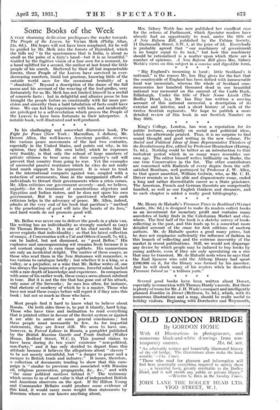In his challenging and somewhat discursive book, The Fight for
Peace (New York : Macmillan, 5 dollars), Mr. Devere Allen, the well-known American pacifist, reviews the various peace movements of the last two centuries, especially in the United States, and points out why, in his opinion, they failed. His own belief, which he expresses very frankly, is that only the refusal of large numbers of private citizens to bear arms at their country's call will prevent that country from going to war. Yet the examples of successful passive resistance which he cites do not really lend much support to his argument. It is wiser to trust in the international compacts against war, coupled with a reduction of armaments, than in the unorganized efforts of individuals to thwart their governments when a crisis comes. Mr. Allen criticizes our government severely—and, we believe, unjustly—for its treatment of conscientious objectors and Egyptian and Indian rioters, and he does not spare his own government. But it may be questioned whether such criticism helps in the advocacy of peace. Mr. Allen, indeed, admits at the very end of his book that pacifism's " method is the penetration of good will into the hearts of its foes," and hard words do not promote good. will.






































 Previous page
Previous page